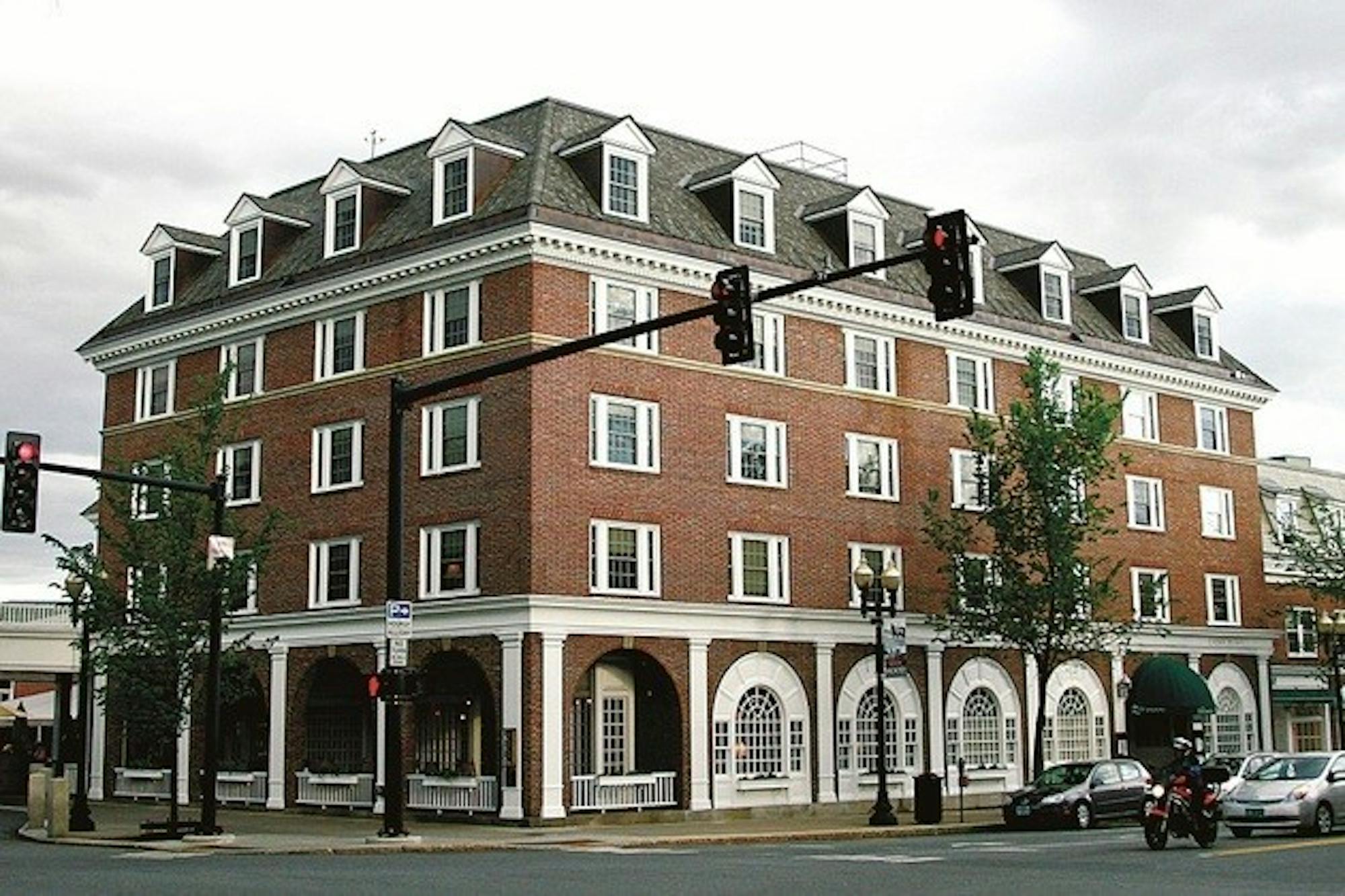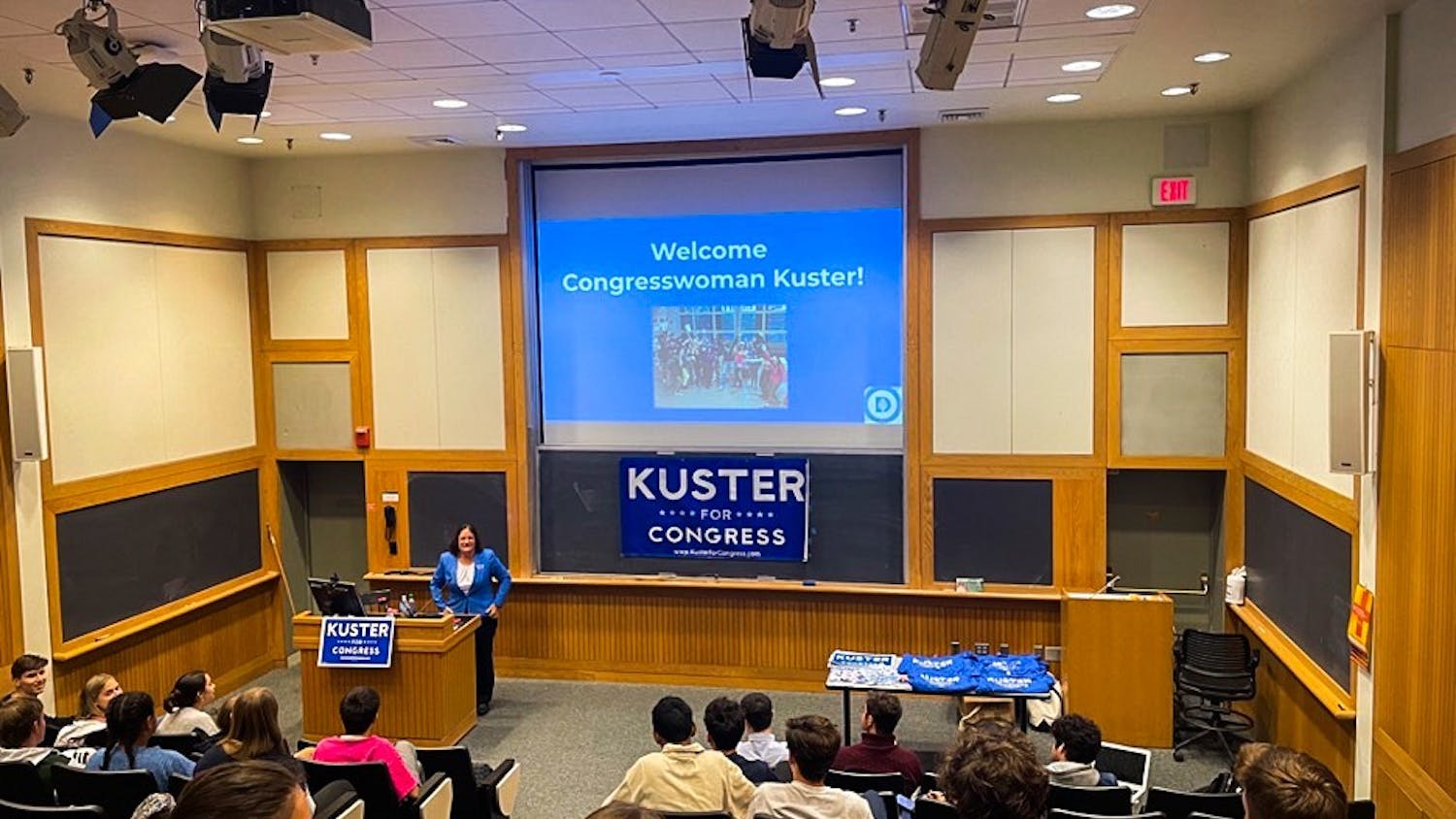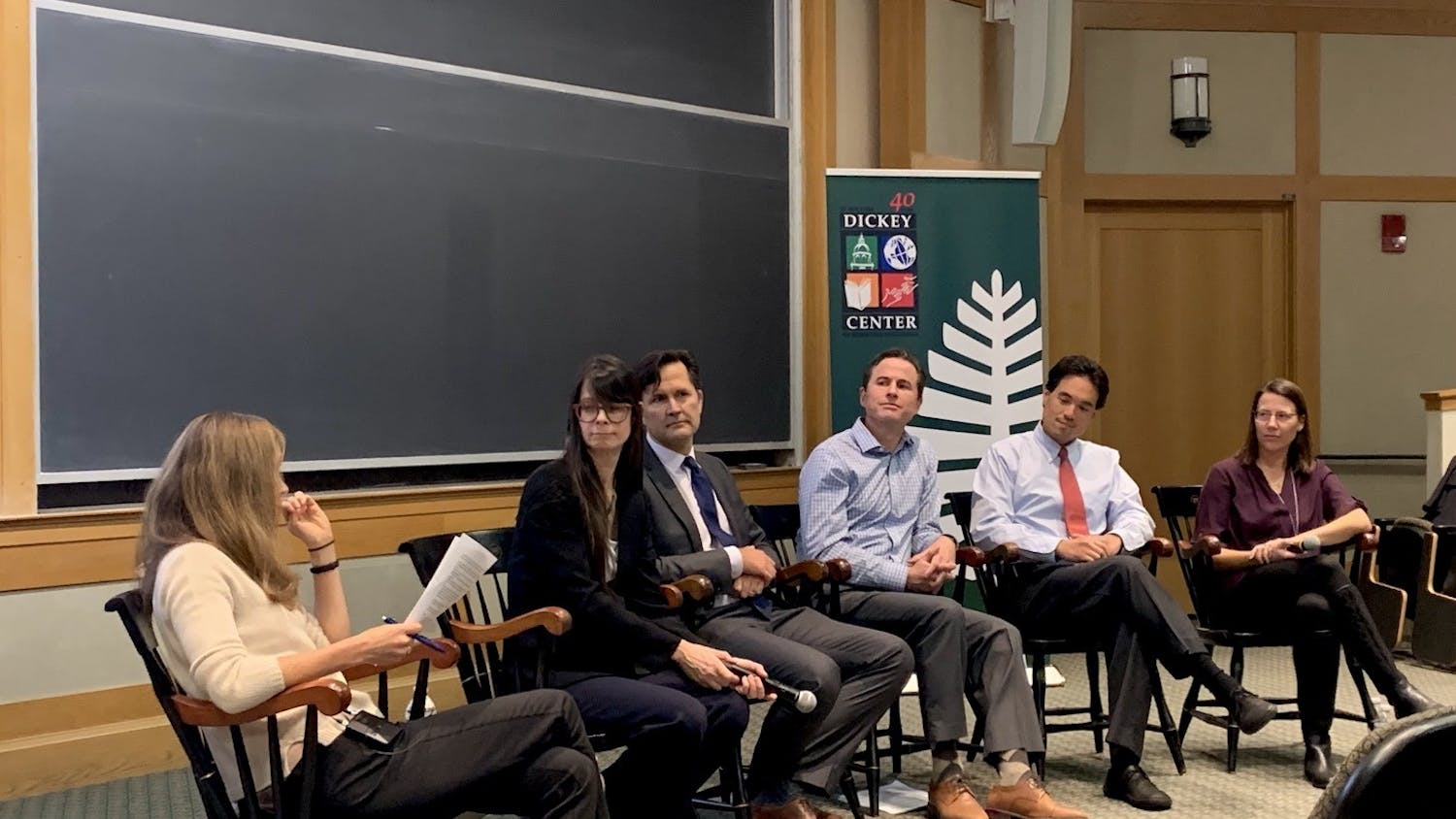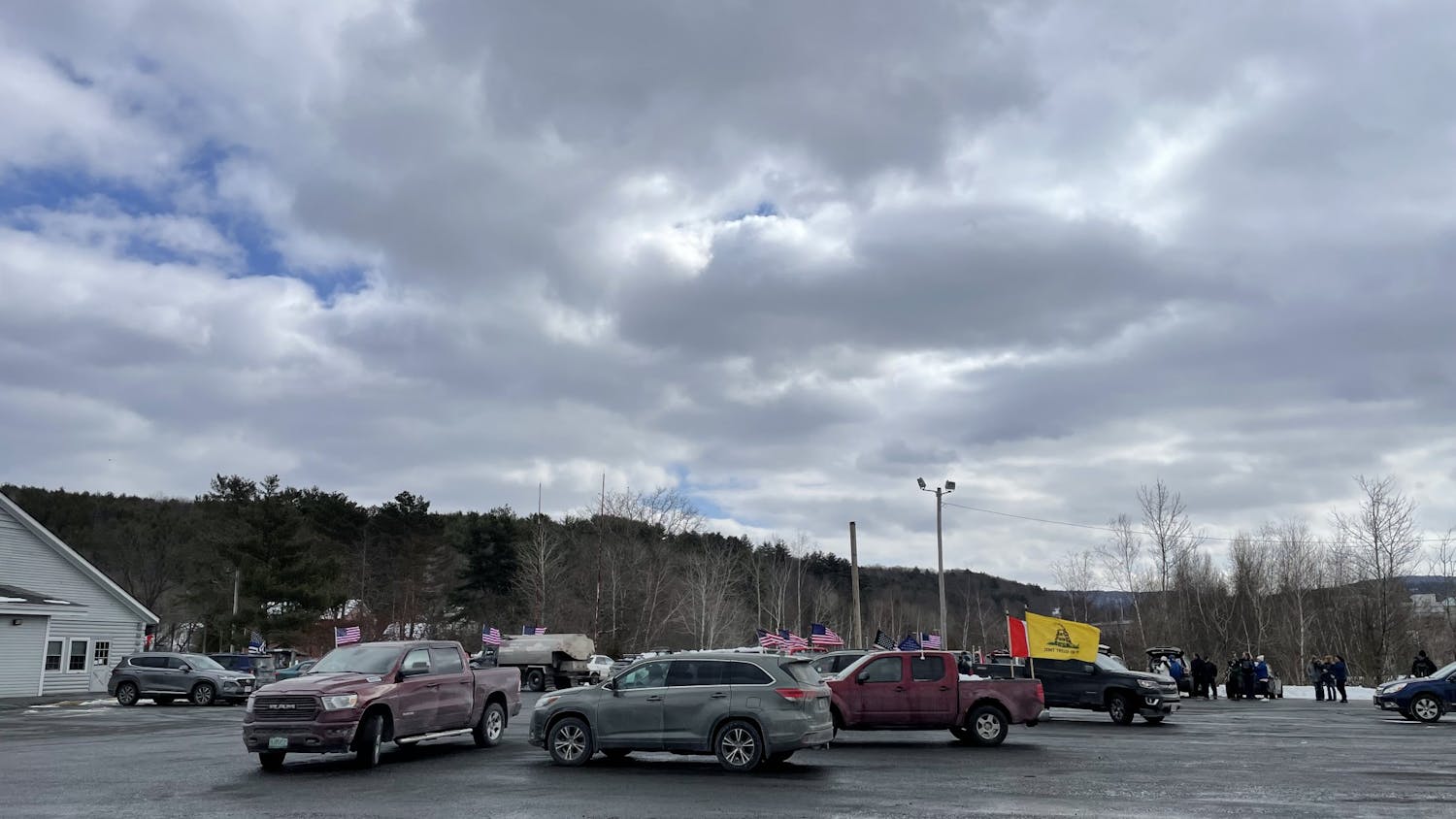On April 26, the Concerned Alumni of Dartmouth College hosted a sold-out roundtable discussion titled “Important Conversations Never Had — College COVID-19 Vaccine Mandates: Scientific, Legal and Ethical Considerations” at the Hanover Inn, followed by a speech from lawyer and presidential candidate Robert F. Kennedy Jr. A Q&A session had originally been scheduled to take place after the panel, but the segment was canceled after Kennedy announced his last-minute appearance at the event, according to Michael Koss, a member of Concerned Alumni of Dartmouth College.
The roundtable discussion featured Harvard Medical School professor Dr. Martin Kulldorff, cardiologist Dr. Asseem Malhotra, orthopedic surgeon Dr. Joel Wallskog, George Mason University law professor Todd Zywicki ’88, clinical trial expert Brook Jackson and Dr. Sandy Reider. The panel was moderated by Kim Witczak, a consumer representative on the FDA Psychopharmacologic Drug Advisory Committee and discussed how the rollout of vaccines had harmful effects on public health.
Geisel microbiology department and immunology professor and chair Dr. David Leib said he attended the event because he hoped to speak up during the Q&A session, which ended up being canceled.
“The event was billed as an important conversation never had,” Leib said. “I guess what was disappointing to me, as an immunologist and as a virologist, was that there was no conversation at all. It was really a monologue, or perhaps a dialogue, among the panelists themselves, without allowing other esteemed experts that were in the room to ask questions and weigh in.”
Kennedy’s speech, which replaced the advertised Q&A, lasted for approximately 30 minutes and focused on the claim that vaccines cause autism in children.
“We have solid proof that they are causing more harm than [good]… that they are killing our children,” Kennedy said. “And yet a thousand colleges in this country still have these [COVID-19 vaccine] mandates.”
Kennedy added that he has met multiple women with children who have intellectual disabilities, which they believe “were caused by vaccines.” He pointed to the statistic that the rate of autism in children has increased as vaccination numbers have also increased.
“In my generation, [the rate of autism] is still one in 10,000,” Kennedy said. “In my kids’ generation, one in 34 kids have the diagnosis.”
According to the National Institutes of Health, while the rate of autism among children has risen since initial estimates in the 1960s, the diagnostic criteria used to classify the disorder has also expanded. The claim that vaccines cause autism has also been disproven, according to the CDC.
Kennedy added that he is not “anti-vaccine” but skeptical because there is no “placebo-controlled” study that proves that vaccines are safe. However, all vaccines approved for use in the United States are subject to placebo testing, according to the Food and Drug Administration.
Immune Monitoring and Flow Cytometry Shared Resource director at the Dartmouth Cancer Center Dr. Daniel Mielcarz ’99 Geisel ’10 also attended the event with the hope of participating in the canceled Q&A segment. According to Mielcarz, the messages the panelists delivered were “anti-science and dangerous, anti-public health.”
“I do think that bodily autonomy is an important concept, but I also think that vaccination has been the greatest achievement in human health ever,” Mielcarz said. “With people going after COVID vaccines, it's undermining the faith in all vaccines, which is very dangerous.”
During the panel, Malhotra stated that the healthcare system has resulted in “misinformed doctors and misinformed and unwittingly harmed patients” who have been misled by biased research. He added that the creation and distribution of the vaccines resulted in a public health disaster.
“In my whole career as a doctor in 20 years, I have never been aware of a pharmacological intervention that has such poor efficacy and such unprecedented harm,” Malhotra said. “So why is this not common knowledge?”
Kuldorff opined on the start of the COVID-19 pandemic, stating that he was afraid of COVID-19 for “ten minutes” but ultimately did not think it was a particularly harmful disease. He added that he believes the pandemic was the “most deadly in history” due to policies protecting those who already had “natural immunity” rather than properly protected high-risk individuals — particularly older, working class individuals.
“We were protecting young adults who are part of the laptop class: generally bankers, lawyers and scientists,” he said. “All the people in the working class were at risk.”
Wallskog, a doctor, cited how his education about vaccines and the FDA approval process was “zero.”
“For you to think that your doctors are an educated source for that information — they aren’t,” he said.
Wallskog then discussed “informed consent,” or patients’ rights to make their own medical decisions with an understanding of the associated risks. Wallskog said that when he received the COVID-19 vaccine, a clinic nurse administered his dose within 15 seconds of Wallskog sitting down and did not discuss its effects.
“For me, [informed consent]is about what a reasonable person would want to know,” Wallskog said. “And for me, I had nothing.”
Witczak then asked each member of the panel about their experiences with censorship. Among the panelists, Reider said he was investigated by his medical board for “deviating from what was considered scientific consensus,” Kulldorff said he was removed from the CDC vaccine board and was suspended from Twitter and Jackson said she was censored by the British Medical Journal.
Witzack concluded the conversation with a question to the panel about whether the panelists saw any “hope for the future,” referring to whether they thought the public would ever reject vaccines. The panelists did not come to a definite conclusion.
“We are the sound majority,” Witzack said. “We’re up against evil — I think that’s the vocal minority.”
Leib said that although he went to the event with an “open-mind,” he felt very disappointed that the ethe Q&A was canceled.
“I was actually kind of shocked that that event was sold out –– I was surprised that this event was permitted on college property,” Leib said. “On the other hand, I also believe in freedom of speech, and that freedom was not afforded to us.”
Correction Appended (May 2, 11:07 a.m.): A previous version of this article incorrectly stated Mielcarz's title. The article has been updated.
Correction Appended (June 3, 11:33 a.m.): A previous version of this article incorrectly stated Zywicki's title. The article has been updated.




